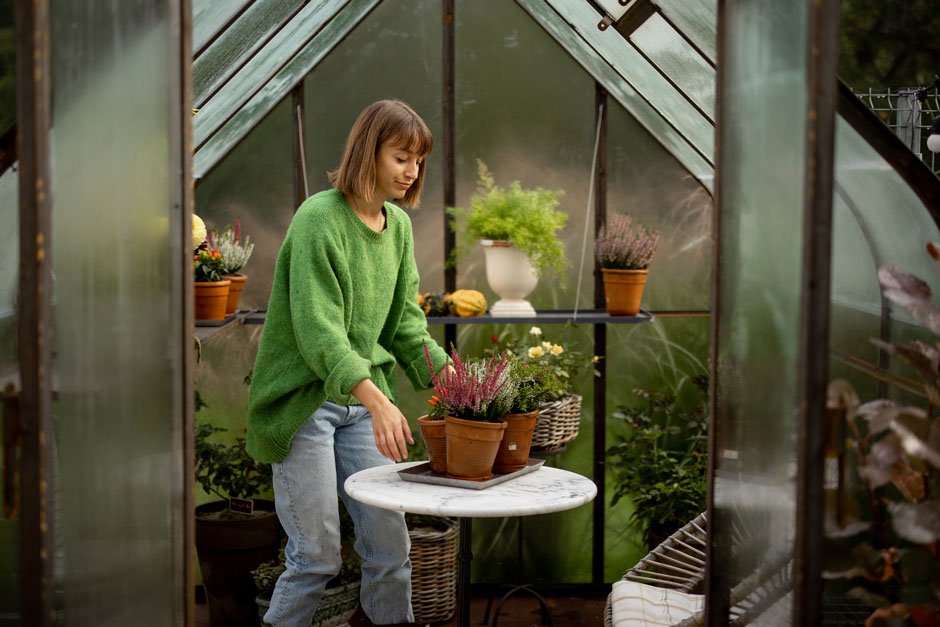Introduction
Hydroponic indoor plants are the perfect way to bring life and greenery into your beautiful home. Unlike their soil-based counterparts, hydroponic plants take advantage of a nutrient-rich water solution and grow medium in some cases. Hydroponic plants are straightforward to care for as they need less maintenance.
Smarter hydroponic wall planters indoor systems even take care of themselves as they come equipped with the latest technology that includes cameras, sensors, timers, and a mobile application.
Despite modern systems offering everything, it’s vital to understand hydroponics basics to ensure your plants stay vibrant and healthy. Let’s take a look at four expert-proven tips to help you grow nutrient-rich plants indoors.
Pick Plants Well-Suited to Your Needs
The care and maintenance you need vary from one type of crop to another. Picking the right plants for your indoor garden is thus vital so as to provide the highest possible returns for your hydroponic gardening projects.
While hydroponics involves advanced technologies, the maintenance expenses for the crops are lower since almost everything is done by the system itself. You need to pick low-maintenance and high-yielding plant varieties for maximum benefits, as a home gardener.
Spinach, lettuce, kale, cucumbers and other small veggies as well as herbs with high nutritional values and low production costs can be the perfect choice. Going for fast-growing crops or those with a shorter harvesting time can be beneficial for indoor hydroponic gardening. With these crops, you’ll be able to monitor and manage the end-to-end crop production cycle more efficiently.
Understand Your Water
The soil usually acts as a natural buffer. And since it isn’t available, it’s vital to make sure that you are using pure water. It’s beneficial to check the composition of the water you’re using by going the extra mile for a laboratory analysis. Poor quality of water can lead to a range of deficiency and toxicity problems in your hydroponic system.
You need to be very careful with your water, especially at the beginning of the plants’ lifecycles and towards the production stage. Municipal water usually contains elements such as sulfates, calcium, chloride, and magnesium bicarbonates, which affect the EC/PPM and pH of your hydroponic nutrient solution. The deeper you understand your water’s composition, the better you can treat or manage your nutrient solution to make it ideal for your crops.
Introduce a Fertigation System
Fertigation involves injecting fertilizers into irrigation systems. In hydroponics gardening, the right distribution of fertilizer into pure water is vital since the crops don’t depend on soil to grow. They depend on the right amount of nutrients and water to survive.
Precise distribution of fertilizer is vital in hydroponic gardening. The soil provides a buffer for acids, bases, and salts. Since this natural buffer isn’t available, gardeners need to be careful not to shock their crops with nutrient overdose.
It’s challenging to apply the right fertilizer amount since when growers mix nutrients into the water, the levels of pH must still be optimal for the crops to absorb the required amount of the solution. Without the right fertigation system, this can be time-consuming since the gardener must pour, mix, and test manually until the levels of pH are correct.
Implementing the right fertigation system will make the entire process more efficient. Your crops remain more stable and are fed on a regular basis, resulting in optimal growth.
Reduce Pest Infestation with Smart Farm Management
Irrespective of the growing conditions and the crops, each hydroponic gardening system can be affected by pests at some stage. Spider mites, aphids, whiteflies, etc., invade hydroponic grow rooms and plants. Taking adequate and effective precautionary measures is vital to managing pests and boosting your hydroponic plants yield.
While you can use agrochemicals in recommended quantities, other techniques are available, including installing moving fans and ensuring proper ventilation in your rooms. These practices can help reduce the spread and growth of mold and pests.
Another practice that has proven to reduce pests is maintaining cleanliness in your hydroponic gardening system. Maintaining cleanliness not only helps fight diseases but also boosts the health of your crops, leading to higher yields.
How Can Gardyn Help You Grow Nutrient-rich Food Indoors?
Gardyn provides you with the opportunity to say goodbye to the drawbacks and limitations of soil-based or traditional gardening and welcome an innovative solution that smoothly blends nature with contemporary living.
Gardyn’s wall planter system, equipped with state-of-the-art HydroponicsTM technology, converts any bare wall into a flourishing produce garden. This system not only boosts your interior home’s aesthetic but also nourishes your body and soul. With this system, you can grow flowers, fruits, herbs, veggies, and more.

